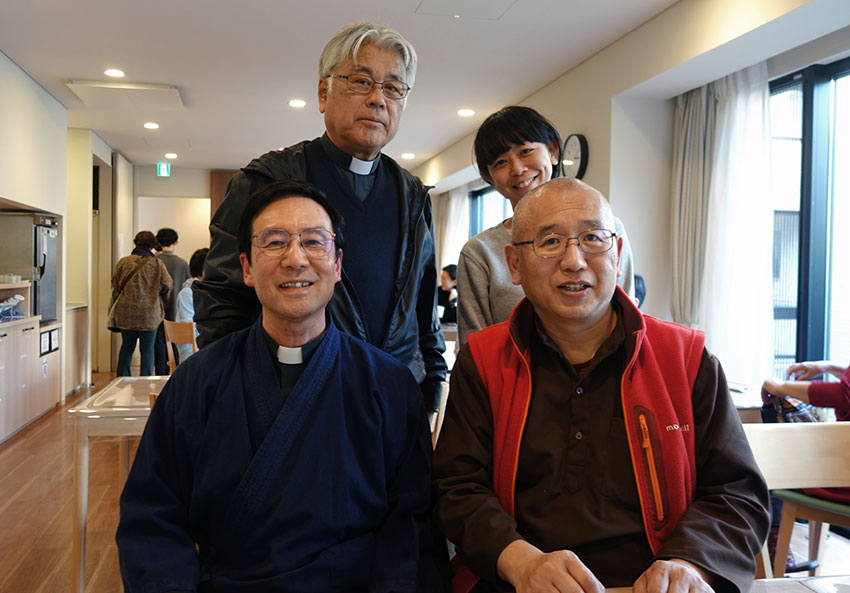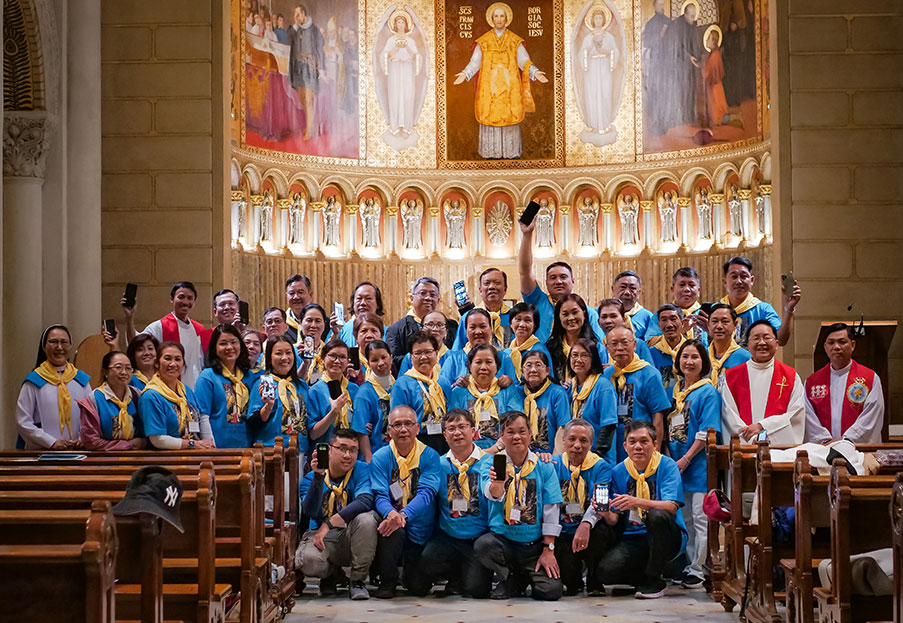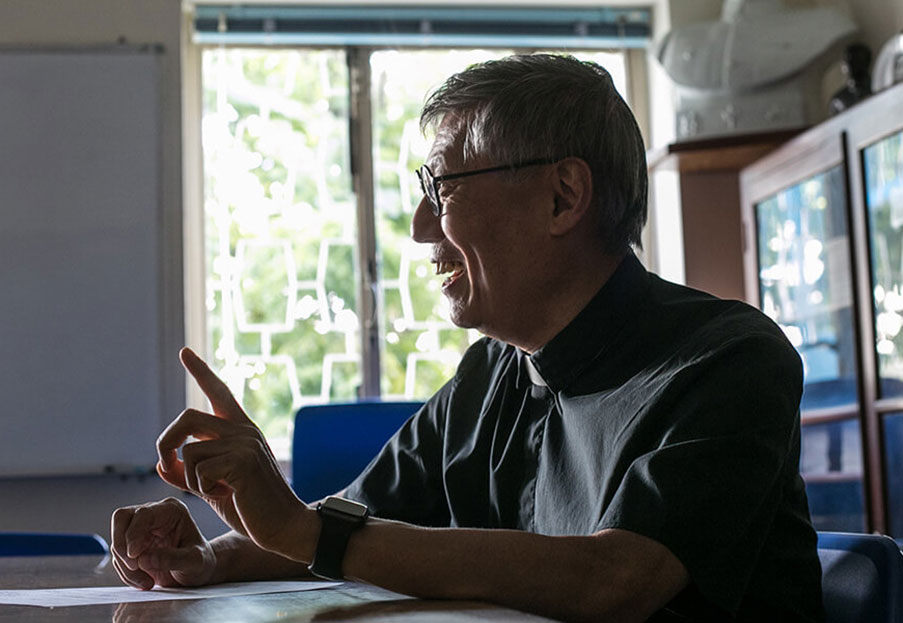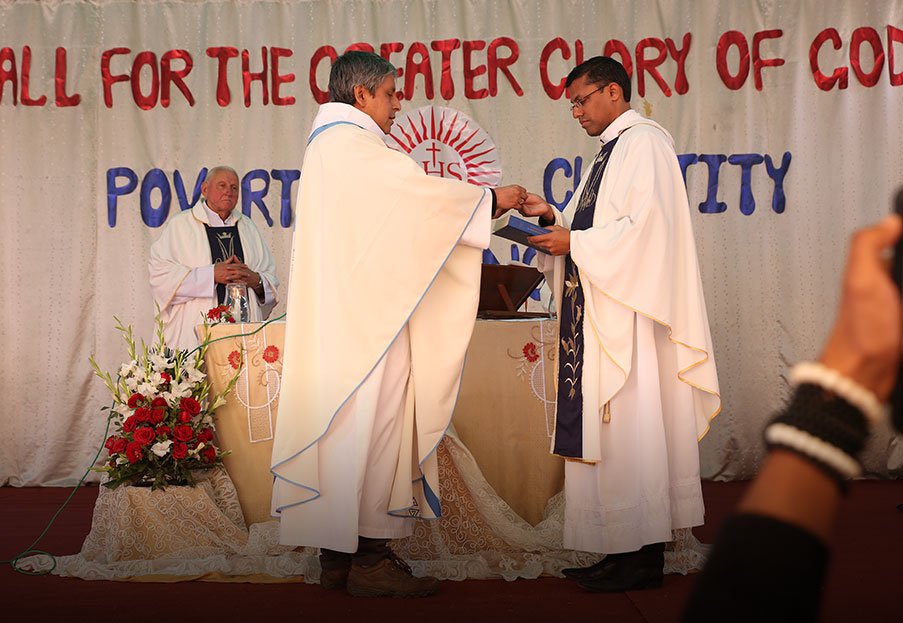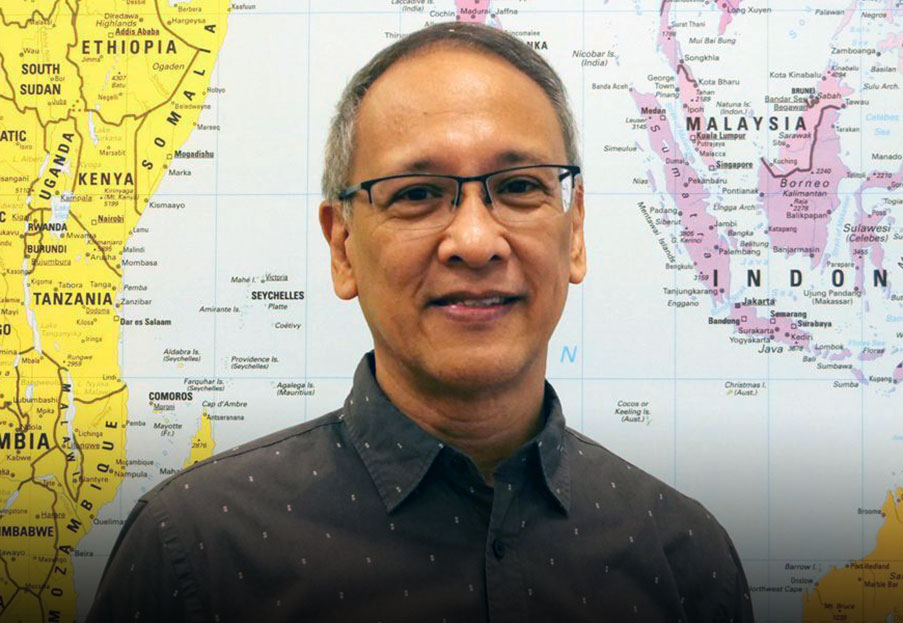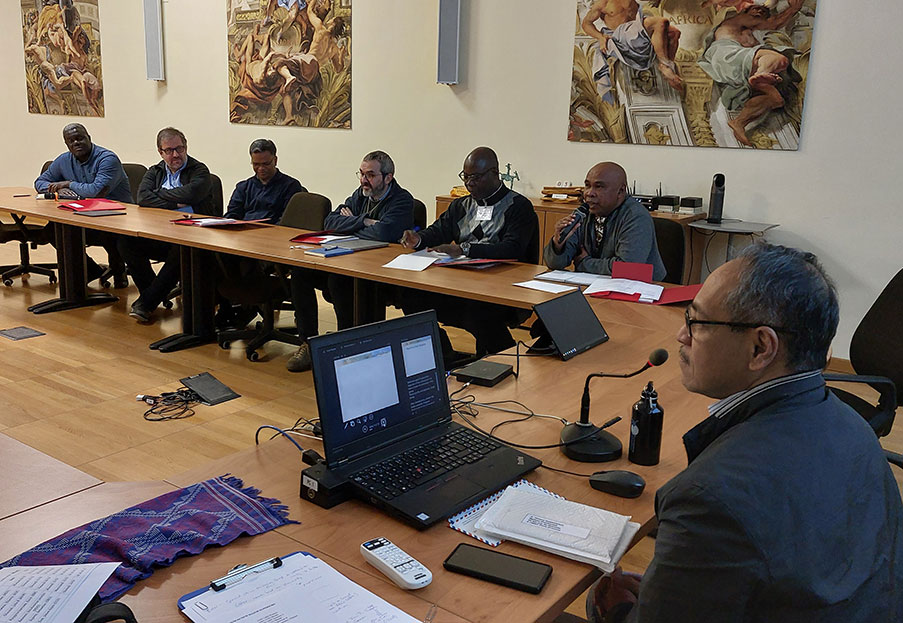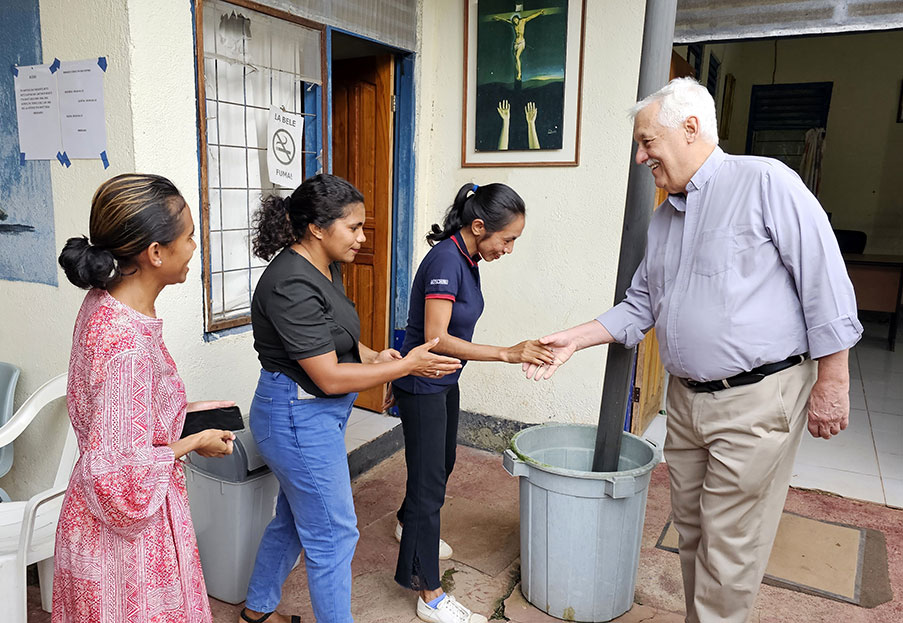Christian Vipassana Meditation
Toshihiro Yanagida, SJ - Jesuit Spirituality
Center “Seseragi”, Tokyo, Japan - Province of Japan
[From “Jesuits 2022 - The Society of Jesus in the world”]
An Ignatian path for Japanese people through meditation exercises using awareness not just of mind and thought, but also of body and senses.
In the middle of our globalizing modern world,
we Jesuits are called to show the way to God through the Spiritual Exercises
and discernment; that is the first of our Universal
Apostolic Preferences. We try to do this for people not only being attached
to worldly materialism, but also being attached to ego-centeredness. However,
we need to apply this Ignatian heritage through suitable ways in a context of
inculturation.
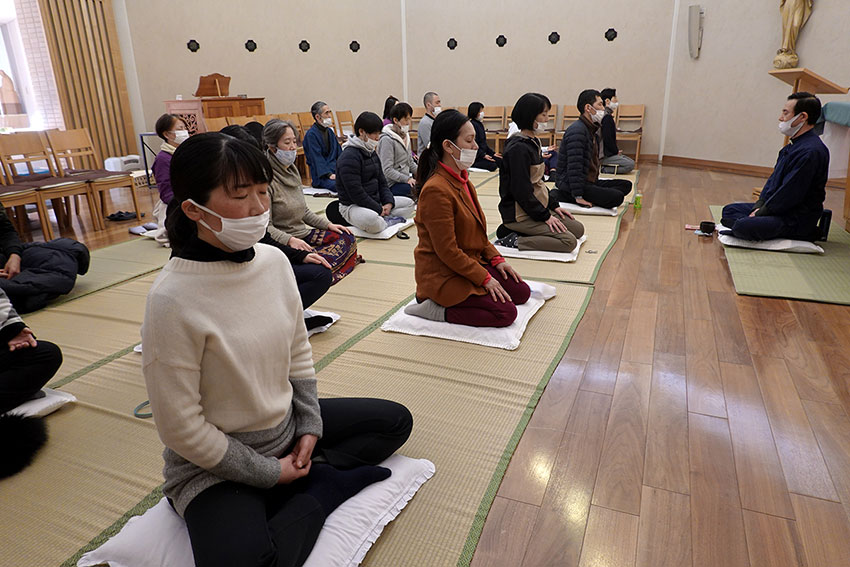
For many years, as a Jesuit engaged in spiritual direction, I have been leading 30-day and 8-day retreats of the Spiritual Exercises of St. Ignatius mainly for training Jesuit novices but also novices and religious nuns coming from many different congregations. The Ignatian Spiritual Exercises aim to liberate the retreatant from disordered attachment and lead him or her to live a life resonating with God’s will with a detached mind. It is not so easy for Japanese to cultivate a detached mind through the traditional Ignatian Spiritual Exercises, which were designed mainly for western people who are intellectually oriented. I gradually realized this point through the experience of directing the Spiritual Exercises to Japanese people.
Japanese mentality is much more oriented to the
wholeness of body and mind. So, I developed meditation exercises using
awareness not only of mind and thought but also of bodily sensations and
focusing on the senses in a nonjudgmental way in order to cultivate a detached
mind more effectively. These meditation exercises are based on Vipassana
meditation, which is derived from Theravada Buddhism. Vipassana meditation has
now spread all over the world in the form of mindfulness meditation. This form
of meditation calms the mind even in stressful situations and offers liberation
from various mental sufferings and anxieties.
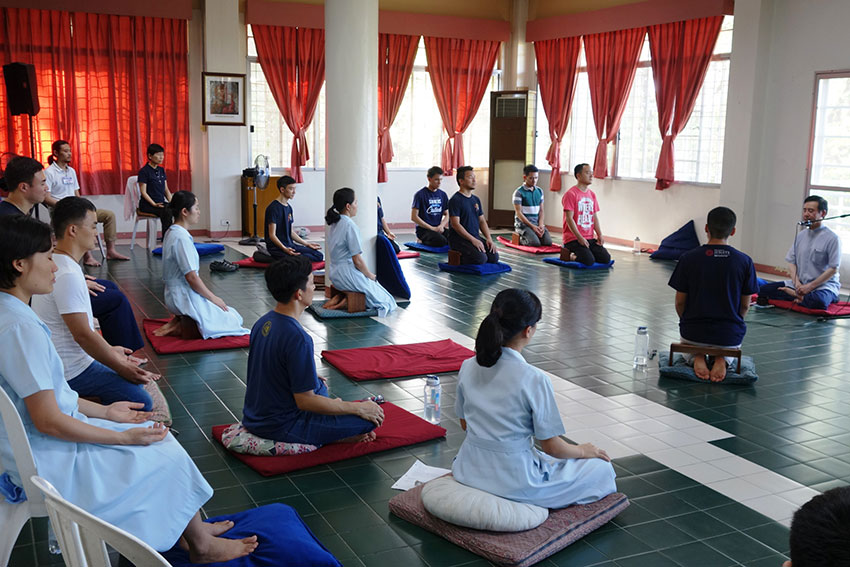
I use this form of meditation and call it “Christian Vipassana Meditation” based on Christian ideas and biblical thoughts. These meditation exercises are readily applicable to daily life. This nonjudgmental awareness can also foster an agape mind, unconditional love, which was taught by Jesus. And this meditation is quite helpful to make Ignatian Spiritual Exercises more universal and effective in concrete apostolic life and work.
The core of the meditation is “being aware of
the here-and-now just as it is with no- judgment.” More concretely we train
ourselves to “being intentionally aware of sensation, emotion and thought in
the present moment with no-judgment” so that we cultivate inner freedom and a
peaceful mind. We practice this through different types of meditations. We
start from meditation on sensations, then we move to meditation on emotions and
thoughts. Here is a list of meditations: breathing meditation on abdomen and nostril,
body scanning, hand moving meditation, finger moving meditation, walking
meditation, listening meditation, looking meditation, eating meditation,
meditation of soothing strong feelings, being aware of thoughts as they are,
and meditation for agape to myself and to others.
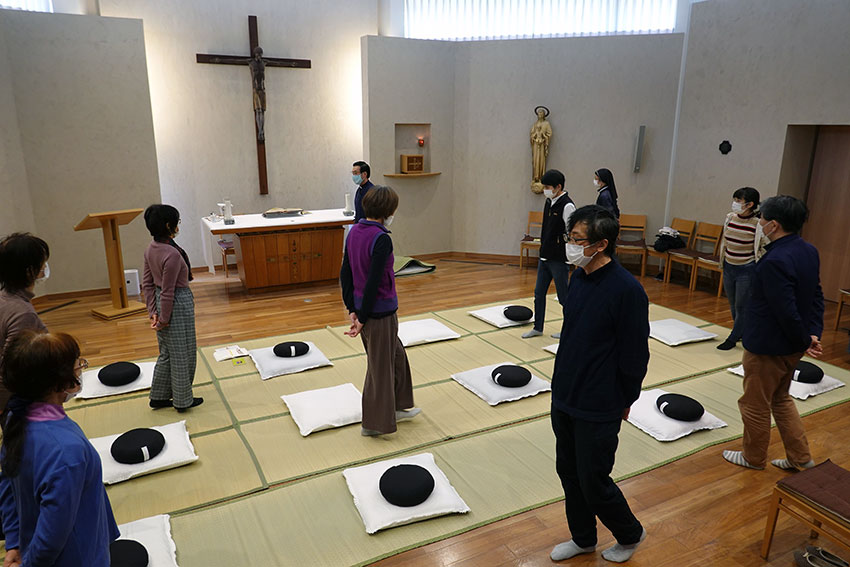
I started Christian Vipassana Meditation in 2007 after I experienced ten days of Vipassana meditation in India. I gradually applied the Christian Vipassana Meditation to 8-day Spiritual Exercises, and I found its effectiveness for cultivating inner freedom and detachment. This becomes a particularly good foundation for the “Ignatian indifference.”
So far, more than 2,500 Japanese, including not only Catholics but also Protestants, Buddhists, and ordinary people of no religion, have experienced Christian Vipassana Meditation through one-day, two-day, three-day, and eight-day programs.
Vipassana meditation considerably overlaps with
agape, unconditional love, which is taught by Jesus and is the central teaching
in Christianity. From the standpoint of Christianity, Vipassana meditation is
recognized as being aware of sensations, emotions, and thoughts from the
consciousness of unconditional love, agape. We accept our sensations, emotions,
and thoughts as they are even though they might be very negative.
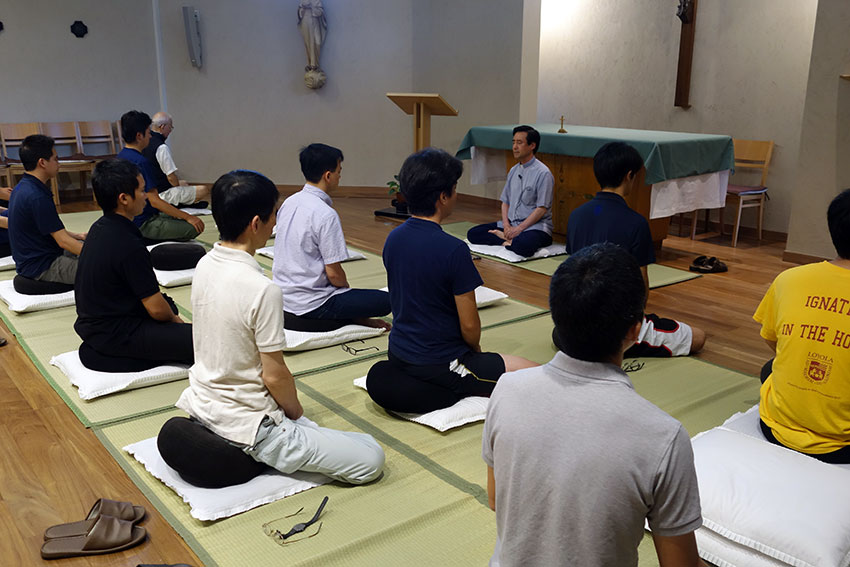
This nonjudgmental awareness is a way of separating us from ego-centeredness. Most of us are often caught up in ego-centeredness in daily life because we always think about our own benefits and seek pleasure and avoid pain. This tendency of ego-centeredness often happens unconsciously. Therefore, in order to get rid of attachment to ego-centeredness, Vipassana meditation emphasizes conscious and intentional nonjudgmental awareness. The continuous training of “being aware of the here-and-now with no-judgment” brings us to inner freedom and a peaceful mind by being detached from ego-centeredness. Thus, the meditation cultivates agape in the depth of our mind.
After 13 years of experience directing Christian Vipassana Meditation applied in the Spiritual Exercises, I could say that this type of meditation might be an effective means to form Japanese people toward holistic integration of body and mind, toward being a person of agape, a true disciple of Jesus. I think this meditation is an instrument of inculturation which shows the way to the authentic God of love for the modern people in the Japanese society.
Christian Vipassana Meditation also opens
practical dialogue between Christianity and Buddhism through three-day annual
joint meditation sessions since 2017.
